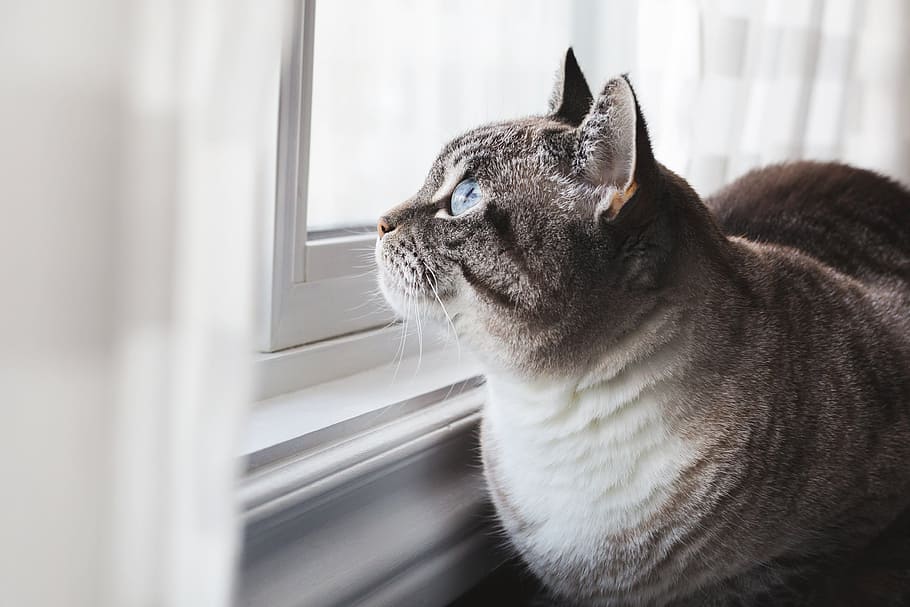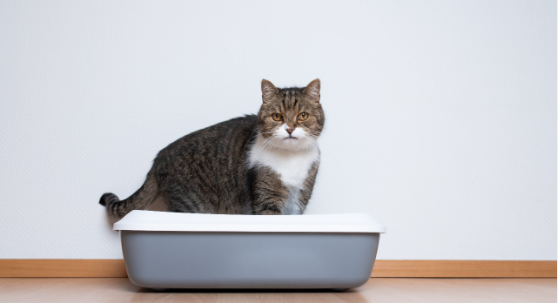How to Tell If You Cat Has Imprinted on You?
Cats, known for their independent and mysterious nature, can form strong bonds with their human companions. Understanding the concept of cat imprinting and recognizing the signs can help you build a loving, trusting relationship with your feline friend. In this article, we’ll explore the key signs of how to tell if you cat has imprinted on you and offer tips on how to nurture that special bond.
The Signs of Cat Imprinting
Recognizing the signs of cat imprinting is crucial to understand your feline friend’s attachment to you. Here are some expanded explanations of the signs on how to tell if your cat has imprinted on you.
Sign 1: Following You Everywhere
When a cat has imprinted on you, they often see you as its primary source of security and comfort. As a result, they may follow you from room to room, observing your activities and seeking your attention. This behavior, known as “shadowing,” indicates that your cat values your presence and wants to be near you.
Sign 2: Preferring Your Company
Cats that have imprinted on someone typically display a preference for that person’s company. They may choose to sit or sleep near you, even if other people are available. You might also notice your cat becoming more affectionate towards you, such as purring, kneading, or nuzzling you more than they do with others.
Sign 3: Seeking Physical Contact
Physical contact is a strong indication of a bond between a cat and its human. If your cat has imprinted on you, they will likely seek opportunities for physical contacts, such as sitting on your lap, rubbing their face against you, or curling up beside you. These behaviors are your cat’s way of showing affection and trust in your relationship.
Sign 4: Trust and Vulnerability
A cat that trusts you and feels safe in your presence is more likely to display vulnerable behaviors. If your cat has imprinted on you, it may expose its belly, which is a sign of trust and submission. Sleeping near or with you is another indication of trust, as cats are most vulnerable when they are asleep.
Sign 5: Responding Positively to Your Voice
A cat that has imprinted on you will often respond more positively to your voice than to others. They may come when called, react to your tone, or even follow simple commands. This responsiveness suggests that your cat associates your voice with comfort, safety, and positive experiences.
Sign 6: Marking You with Their Scent
Cats have scent glands on their face and paws, which they use to mark objects, people, and other animals with their scent. This is their way of claiming territory and creating a familiar, comforting environment. If your cat rubs their face or scratches nearby objects when they are around you, it may be marking you as “theirs,” indicating that they have imprinted on you.
Sign 7: Bringing You “Gifts”
Some cats demonstrate their affection and loyalty by bringing their humans “gifts,” such as toys, socks, or even small prey items like birds or mice. This behavior is a sign that your cat considers you part of their “family” and may be trying to provide for you or share their success in hunting.
By observing these signs and understanding your cat’s unique ways of expressing affection, you can better appreciate the strength of the bond between you and your feline companion.

Frequently Asked Questions (FAQ)
Can cats imprint on multiple people?
Yes, cats can form bonds with multiple people, although they may have stronger connections with some individuals over others. Each cat has its unique personality and preferences, which can influence its attachment to different people in a household.
Factors such as the quality of interactions, the time spent together, and the individual’s ability to meet the cat’s needs can all impact the strength of the bond. It’s essential to remember that while a cat may have a preference for one person, it can still have meaningful relationships with others in the family.
Is it possible to change a cat’s imprinting preferences?
While it may be challenging, it is possible to strengthen your bond with a cat, even if they have initially imprinted on someone else. The key to building trust and forming a strong connection is to be patient, consistent, and understanding of your cat’s needs. Spend quality time with your cat, engage them in play, and provide a safe, comfortable environment. Gradually, your cat may begin to see you as a source of comfort and security, which can lead to a stronger bond. It’s essential to respect your cat’s boundaries and give them space when needed, as pushing too hard can have the opposite effect.
How long does it take for a cat to imprint on someone?
The length of time it takes for a cat to imprint on someone can vary greatly and depends on factors such as the cat’s personality, history, and the individual’s approach to building trust. Some cats may form strong bonds quickly, while others may take weeks or even months to feel comfortable and secure with a new person. Factors that can influence the bonding process include the cat’s previous experiences with humans, their age, and whether they have experienced any trauma or neglect. Being patient, consistent, and attentive to your cat’s needs will help create a solid foundation for a lasting bond.
What can I do if my cat doesn’t seem to imprint on anyone in the household?
If your cat doesn’t seem to imprint on anyone in the household, it’s essential to give them time and space to adjust to their environment. Some cats may take longer to form bonds due to factors like past experiences, personality, or anxiety. Make sure to provide a comfortable and secure space for your cat, with access to hiding spots and perches where they can feel safe. Engage in interactive play and offer positive reinforcement for desired behaviors. Additionally, consider consulting with a veterinarian or animal behaviorist to rule out any medical or behavioral issues that might be impacting your cat’s ability to bond.
How can I help a newly adopted cat imprint on me or someone in the family?
When you bring a newly adopted cat into your home, it’s crucial to create a welcoming and stress-free environment to help them feel comfortable and secure. Here are some steps to encourage bonding with your new cat:
- Set up a safe space: Provide a quiet, designated area for your cat to retreat to, complete with food, water, a litter box, and a comfortable place to rest.
- Gradually introduce your cat to its new surroundings, allowing them to explore at its own pace.
- Spend quality time with your cat: Engage in interactive play, grooming, and gentle petting to build trust and form a connection.
- Be patient and consistent in your interactions, respecting your cat’s boundaries and allowing them to dictate the pace of the relationship.
- Use positive reinforcement, such as treats or praise, to reward your cat for positive interactions and help them associate you with good experiences.
By following these steps and being patient, you can help your newly adopted cat feel at ease and form a strong bond with you or someone else in the family. In the longer term you will know the signs if your cat has imprinted on you.
Recognizing the signs of cat imprinting and understanding how to nurture a strong bond with your feline friend can lead to a loving, trusting relationship that lasts a lifetime. Be patient, attentive, and compassionate to your cat’s needs, and you’ll be well on your way to becoming their favorite human.




